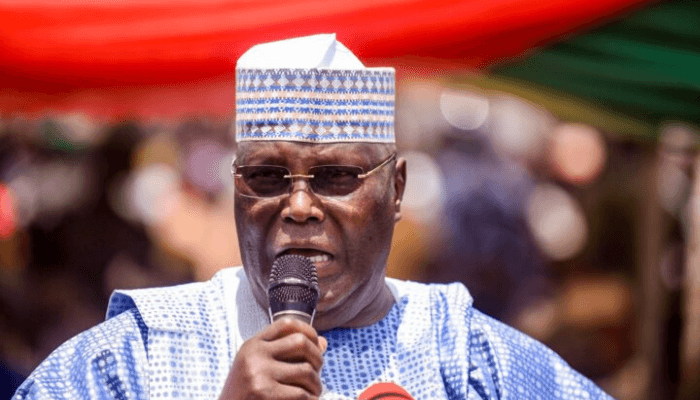Atiku rejects plot to increase VAT, warns Tinubu
Former Vice-President Atiku Abubakar has decried the plan by the Federal Government to increase the VAT, saying the move can become a “blazing inferno that will consume the very essence of our people.” Speaking during an interview on Channels TV’s Politics Today, Taiwo Oyedele, Chairman, Presidential Fiscal Policy and Tax Reforms Committee, said the committee […]

Former Vice-President Atiku Abubakar has decried the plan by the Federal Government to increase the VAT, saying the move can become a “blazing inferno that will consume the very essence of our people.”
Speaking during an interview on Channels TV’s Politics Today, Taiwo Oyedele, Chairman, Presidential Fiscal Policy and Tax Reforms Committee, said the committee is proposing a law to the National Assembly to increase valued added tax from the current 7.5% to 10%.
He said, “We have significant issues in our tax revenue. We have issues of revenue generally which means tax and non-tax. You can describe the whole fiscal system in a state that is in crisis.
“When my committee was set up, we had three broad mandates. The first one was to look at governance: our finances as a country, borrowing, coordination within the federal government and across sub-national.
- Atiku rejects plot to increase VAT, warns Tinubu
- I’ll win 2027 presidential election, says Kwankwaso
“The second one was revenue transformation. The revenue profile of the country is abysmally low. If you dedicate our whole revenue to fixing roads it will be insufficient. The third is on government assets.
“The law we are proposing to the National Assembly has the rate of 7.5% moving to 10% from 2025. We don’t know how soon they will be able to pass the law. Then subsequent increases are also indicated in terms of the year they will kick in.”
But responding in a statement on Sunday morning, Atiku said the move coming on the heels of the increase in the Pump Price of Premium Motor Spirit (PMS) also known as fuel by the Nigerian National Petroleum Corporation Limited (NNPCL) is “destined to deepen the domestic cost-of-living crisis and exacerbate Nigeria’s already fragile economic growth.”
The Peoples Democratic Party (PDP) Presidential Candidate in the last election, who said one did not need be an economist to know the “implications of President Tinubu’s ill-conceived policies for Nigeria’s future”, added that the President would be wise to redirect their efforts towards crafting sustainable solutions to the systemic shocks afflicting the economy rather than compounding the crisis with measures destined to ignite further turmoil.”
He said, “The increase in VAT is set to become the blazing inferno that will consume the very essence of our people… Tinubu’s actions reflect a profound insensitivity to the plight of the less fortunate as he indulges in the opulent renovation of villas and the acquisition of new jets and vehicles for himself and his family.
“President Bola Tinubu, alongside his coterie of advisers, has resolved to raise the VAT rate from 7.5% to 10%, even as the NNPCL has announced a soaring PMS price increase at the pump.
“This move unveils a new era of regressive and punitive policies, and its impact is destined to deepen the domestic cost-of-living crisis and exacerbate Nigeria’s already fragile economic growth.
“President Tinubu and his entourage seem to be resorting to their familiar tactic: heaping burdens upon the impoverished while steadfastly ignoring their extravagant excesses!
“One need not be an economist to grasp the ominous implications of President Tinubu’s ill-conceived policies for Nigeria’s future. The relentless rise in taxes and interest rates has proven excessively onerous, debilitating businesses of all sizes and leading to job losses while intensifying the suffering of the poor.
“The manufacturing sector, in particular, has endured relentless strife since Tinubu’s ascendancy, with its contribution to the GDP diminishing by over 20% since December 2023, as reported by the NBS.
“In early August, Tinubu turned his attention to agriculture. As is customary with this administration, a new policy was clandestinely formulated and announced, permitting duty-free importation of agricultural commodities such as wheat, maize, and paddy, despite vehement opposition from farmer groups nationwide.
“This policy poses a grave threat to Nigeria’s food security ambitions, as local farmers, facing unfair competition from low-cost producers in Asia, Europe, and America, are compelled to reduce or entirely abandon their production efforts. It jeopardizes job creation, wealth generation, and the sector’s long-term prosperity, casting a shadow over Nigeria’s sustainability and development.”
